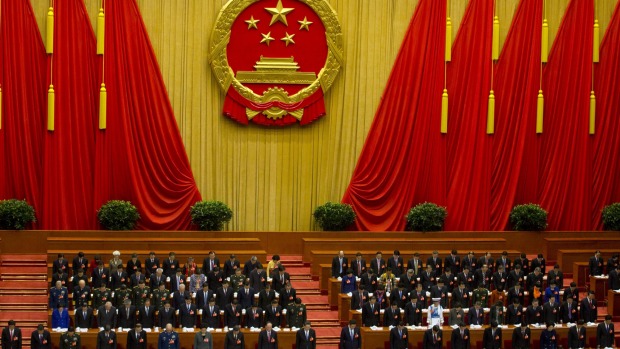
Nishant Dilip Sharma, Research Intern, Institute of Chinese Studies, Delhi
Dualities have always held a prominent place in traditional Chinese philosophy. Unlike the conflicting nature of dual forces in western philosophy, traditional Chinese philosophy manifests this duality in the form of complementary and balancing forces exemplified in the Yin-Yang. The way in which the Chinese government has gone about experimenting and implementing the infamous Social Credit System in China is another duality at play.
What is being seen as the emergence of an Orwellian “Big Brother” age in China, is being carried out in several cities through a number of pilot projects running on a dual ‘carrots & sticks’ model. Just like any other ‘reward-punishment’ scheme, this programme offers certain incentives (carrots) to people complying with the expectations of the governing body and at the same time, has punitive sanctions (sticks) in place for non-compliance. Interestingly, the quality of the carrots and the size of the sticks has not been uniform across all pilots.
This arises from the fact that the implementation of pilot programmes is being undertaken in a two-pronged approach. At one end are the Government run mandatory SCS programmes that are operational in more than 43 Chinese cities. At the other end, there are the corporate-run Social credit systems. Unlike the Government SCS programmes (GSCS), the corporate ones (CSCS) are not mandatory. The CSC pilots do offer virtual and monetary rewards to their customers, however the real intent is to eventually become incorporated with the government’s plans. This way the corporate in question remains in the forefront when SCS is rolled out in a more comprehensive measure. Speaking of the sticks, punishments are harsher in GSCS than under CSCS. The carrots and sticks in the GSCS are in the form of ‘red-lists’ and ‘black-lists’ respectively. While one’s name in the ‘red-list’ would mean a special honor and privileged/subsidized access to public services, a name in the ‘black-list’ would mean lesser privileges or denial of certain privileges. This could mean low internet speed, ban from traveling, denial of bank loans, public naming and shaming, etc. In short, one’s social credit scores could have a great impact on his/her routine life and social reputation.
In a country which bears the tag of the most populous nation on Earth, such measurement of reputation scores for each individual is no small undertaking. This is accomplished through the creation of a systematic surveillance state where big data and artificial intelligence play a major role. Each camera captures the movement of every face and small offenses like jaywalking or walking your dog without a leash could result in an immediate fine from the government. Thus, surveillance in the eastern industrialized towns is associated more with governance and has helped bring down law enforcement costs and many governance issues.
In contrast, state surveillance in Xinjiang and Tibet is employed to address security concerns. Surveillance cameras here snoop into the personal lives of the inhabitants to stamp out any cultural expression. Any sign of resistance opens up the gates of re-education camps, the insides of which many have seen but few have come out to tell the story. Here state security is a priority while separatism is viewed as evil and surveillance becomes a tool. This dual nature of surveillance, that of governance in the eastern region and that of security in the western region, is another duality present in the Chinese system. This duality, however, begs to question the coherence of what China plans to achieve with a full-scale rollout of the SCS model in the entire Mainland China, which could be up and running as early as 2021.
These dual objectives, dual implementation models, dual outcome conditioning, raise multiple questions: Will China be successful at creating a reputation state amidst the incongruities that exist in China? The answer seems to be hooked to a second question: Will China be willing to respect the socio-geographic disparity present between the historically separatist western regions and the presently thriving eastern industrial hubs?
One way of doing so would be to prevent any punitive sanctions and credit reductions on the grounds of cultural suppression. A conundrum in the eastern region could be credit rating reductions caused due to systemic failures, human errors, or corrupt bureaucracy. As remediation mechanisms, legislations are being put in place to prevent such reputation harms. Shanghai’s local credit legislation passed in 2017 on the “right to be forgotten” provides a much-needed right to credit restoration and a reasonable requirement on administrative agencies’ query over citizens’ social credit information.
Such remediation mechanisms are also extended to cover data protection and norms for safe collection, processing and storage of personal data. These measures are limited to eastern cities like Hubei, Shanghai, and Hangzhou. The lack of such legal remedies in the GSCS pilots being run in the western region calls for a systemic shift in the way the pilots are being conducted. More polarized developments in the way the pilots are conducted could likely leave the western inhabitants estranged and brew discontent if the policy is applied without systemic planning and West-specific trials. Perhaps it’s time for the policymakers to take a hint from their traditional philosophies and create more balancing dualities than conflicting ones.